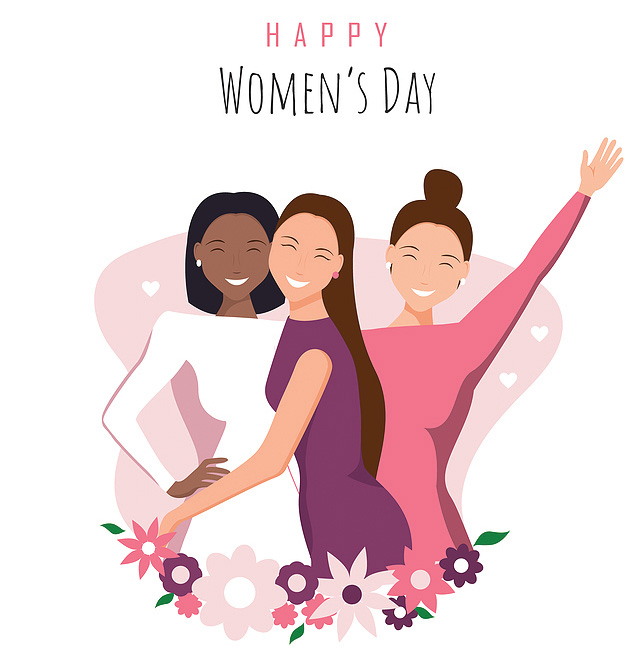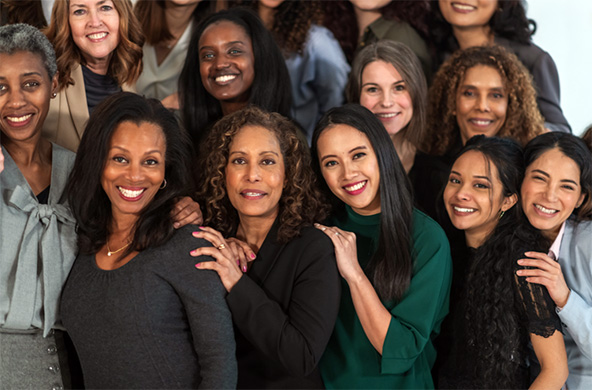Despite taking large strides forward in gender equality, women still fall behind men financially.
 For instance, men are three times more likely to get a business loan than women. Research also has shown that women-owned businesses typically are approved for lower loan amounts than their male-owned counterparts.
For instance, men are three times more likely to get a business loan than women. Research also has shown that women-owned businesses typically are approved for lower loan amounts than their male-owned counterparts.
As the world prepares to celebrate International Women’s Day on March 8, UN Women is drawing attention to these disparities and rallying around the call to “Invest in women: Accelerate progress.”
“One of the key challenges in achieving gender equality by 2030 is an alarming lack of financing, with a staggering $360 billion annual deficit in spending on gender-equality measures,” the organization states on its website, www. unwomen.org. “The time for change is now!”
WHAT IS INTERNATIONAL WOMEN’S DAY?
This global holiday, celebrated annually on March 8, is an opportunity to celebrate women’s achievement, raise awareness about discrimination and take action to drive gender equality.
HOW CAN I GET INVOLVED?
To learn how to give to IWD causes, participate in IWD-related activities and more, visit https://www.internationalwomensday.com.
UN Women’s theme for International Women’s Day 2024 is “Invest in women: Accelerate progress.” Show your solidarity and join the conversation by using the hashtag #InvestInWomen. To learn more about how UN Women are observing International Women’s Day, visit www.unwomen.org.
LACK OF FINANCING AFFECTS FEMALES’ FUTURES
While progress has been made, according to UN Women, females still face major roadblocks to achieving equal economic participation. For one thing, studies show that women-owned businesses do not apply for loans and grants as often or as aggressively as male-owned companies. When they do pursue outside funding, female business owners tend to ask for lower loan amounts — on average about $35,000 less than men, according to Fundera’s “The State of Online Small Business Lending: Spotlight on Women Entrepreneurs” report.
“Additionally, women took out more expensive loans compared to men, which affects business development, as it shrinks the amount of total capital women have to grow their business,” according to the National Community Reinvestment Coalition. “The (Fundera) report noted that about 30 percent of women took out short-term loans, which have higher interest rates and lower eligibility standards, compared to 20 percent of men.”
WOMEN: THE ECONOMIC ENGINE THAT COULD
Nonetheless, women remain an unrivaled economic driver, accounting for 39.1 percent of all businesses (over 14 million), employing 12.2 million workers and generating $2.7 trillion in revenue, according the 2024 Wells Fargo Impact of Women-Owned Business Report.
It is another testament to female resilience that during the COVID-19 pandemic, despite lockdowns and widespread closures, women still launched more businesses than they closed. Wells Fargo also reports that women-owned businesses expanded their workforces and increased their revenue while men’s numbers dropped.
And even outside of crisis situations, data suggests that women are superior investors, as they take a slow-and -steady approach focused on avoiding mistakes and overreactions. One Wells Fargo study showed that as individual investors, women are less impulsive traders, hold fewer risky stocks and are better at staying the course than men.
INVESTING IN WOMEN: ‘A HUMAN RIGHTS IMPERATIVE’
As capable as they are, women still need support to reach their full potential. UN Women points out that females are disproportionately affected by geopolitical conflict, natural disasters, economic turmoil and other crises — which makes improving their financial picture so critical. Without change, the organization warns, more than 342 million women and girls could be living below the poverty line by 2030.
“Investing in women is a human rights imperative and cornerstone for building inclusive societies,” UN Women states in its call to action. “Progress for women benefits us all.”


